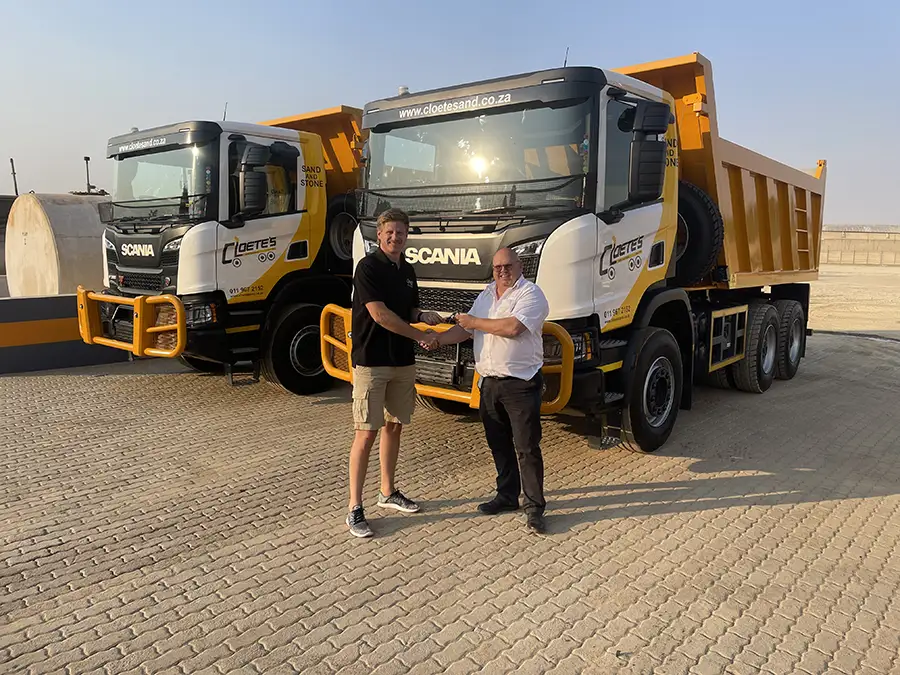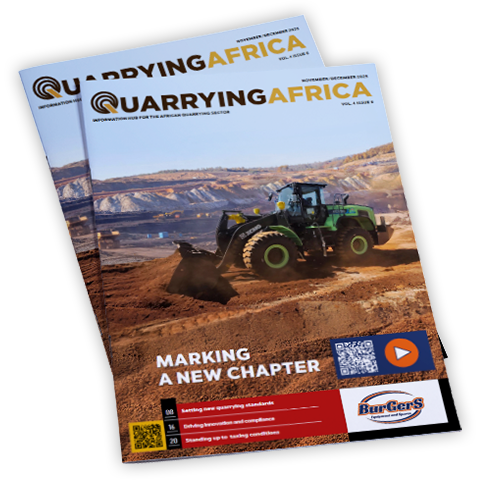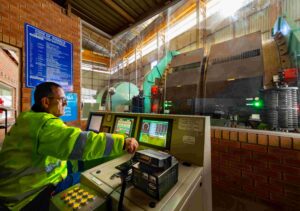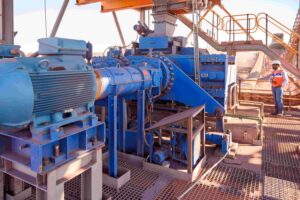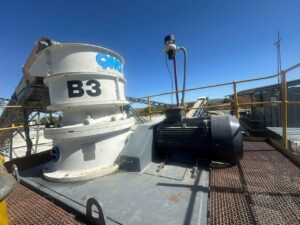From humble beginnings with a single lorry some 40 years ago, Cloete Sand & Stone has over the years transformed its business to become one of the premium aggregate resellers in South Africa. Founded by Brian Cloete in 1982, the company initially subcontracted transportation services to quarries, before moving into the aggregate reselling market, explains MD Wesley Cloete, who joined the family business in 2008 and took over the reins in 2017.
The migration from basic transportation services to aggregate reselling was informed by the need for better service in the industry at the time, the business having been founded on this from its onset.
“My father started the business as a lorry owner/driver, before he switched to aggregate reselling,” says Cloete. “At the time, we were supplying dry sand to contractors who specialised in gunite pools. Their business was extremely time-sensitive – they needed the material at specific times – yet the demand for sand outstripped supply. However, service excellence was key to meeting these specific customer needs, and this was instrumental in the growth of the business.”
By 2008, the business was operating five tipper trucks and 12 concrete mixers. The same year, Wesley Cloete joined and together with Brian Cloete mapped a new growth trajectory in a rapidly changing business environment. By injecting a new level of service excellence – going beyond customer expectations and delivering an industry-leading experience – Cloete has grown the business significantly over the years.
Key to the growth has also been his insatiable appetite for new technologies to drive higher levels of efficiency. This, he says, is important, especially given the rate at which technology is evolving and also the fact that aggregate reselling is a high-volume, low-margin business.
“We have managed to grow the business from 17 trucks in 2008 to 72 to date,” he says. “We have also managed to expand our footprint with a new branch in Cape Town this year. The expansion was largely driven by some of our Gauteng customers who have opened new operations in Cape Town. We determined that there was a need for us to set up a base in Cape Town in order to provide them with the service to which they have become accustomed. Our business is built on service and bending backwards for our customers.”
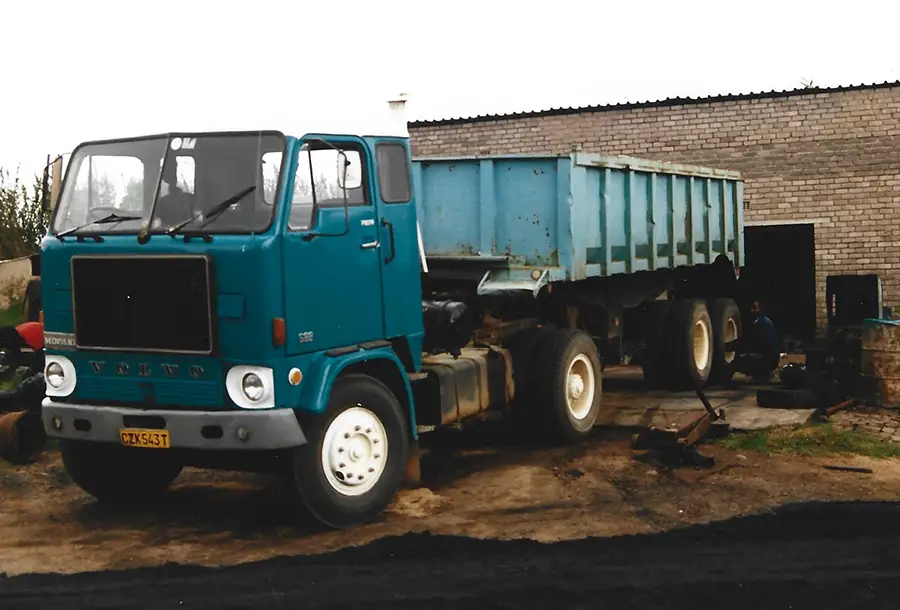
Focus on the fleet
One of the key factors to this growth has been the focus on efficiency, which is instilled in all aspects of the business. As a fleet-driven business, the business places value on premium trucks, which are primarily its main tool of trade. Therefore, says Cloete, the company does not leave anything to chance when it comes to procurement time.
Cloete Sand & Stone runs a multi-brand fleet of tried and tested offerings – Volvo Trucks, Scania and Mercedes-Benz. “Leveraging our 40 years’ experience, we believe that these are the best products on the market for our line of work,” says Cloete. “By investing in new technologies, these OEMs continue to set the bar high in terms of fuel efficiency, reliability and productivity.”
To drive efficiencies within its business, the company investigates new trends in the market to inform some of its procurement decisions. For example, Cloete tells Quarrying Africa that, in direct contrast with some of the local norms where the 440 to 460 hp trucks are the norm in this line of business, the company places value on high horsepower vehicles in the 520 to 560 hp range for its larger tippers. The same approach is applicable to its smaller rigid trucks, which are generally high-horsepower units in the 310 to 360 hp region.
“We are always on the lookout for new ideas. The reason behind our preference for high-horsepower vehicles is that these tools do not work as hard as smaller horsepower vehicles, which impacts on our operational efficiency. If driven correctly, they actually offer better fuel savings,” he says. “The capital outlay is obviously a lot higher, but our calculations tell us that there are major savings in terms of total cost of ownership over the lifetime of the asset.”
For its truck fleet, Cloete Sand & Stone maintains a 50% gearing ratio, which means 50% of the assets are at any given time paid off, while the other 50% consists of fairly new units still on vehicle finance. This move is informed by the need for balance in terms of reliability and economics. The older, paid off fleet, says Cloete, helps pay for the newer trucks, which in turn guarantee high levels of efficiency and reliability.
“In a perfect world, it would be ideal to run a completely new fleet, but the low-margin nature of the business cannot sustain it. A newer fleet keeps service costs down because the older the fleet gets, the higher the cost of maintenance. However, given the cyclical nature of the business, we cannot afford it, hence the need to maintain a balance between paid-off and newer trucks.”
Given the experience of running its preferred brands, the company has qualified mechanics to look after its older, out-of-warranty trucks. With its new vehicles, the company generally takes a five-year maintenance contract with the OEM, which provides peace of mind that the assets are maintained according to OEM specifications with “no surprise costs”.
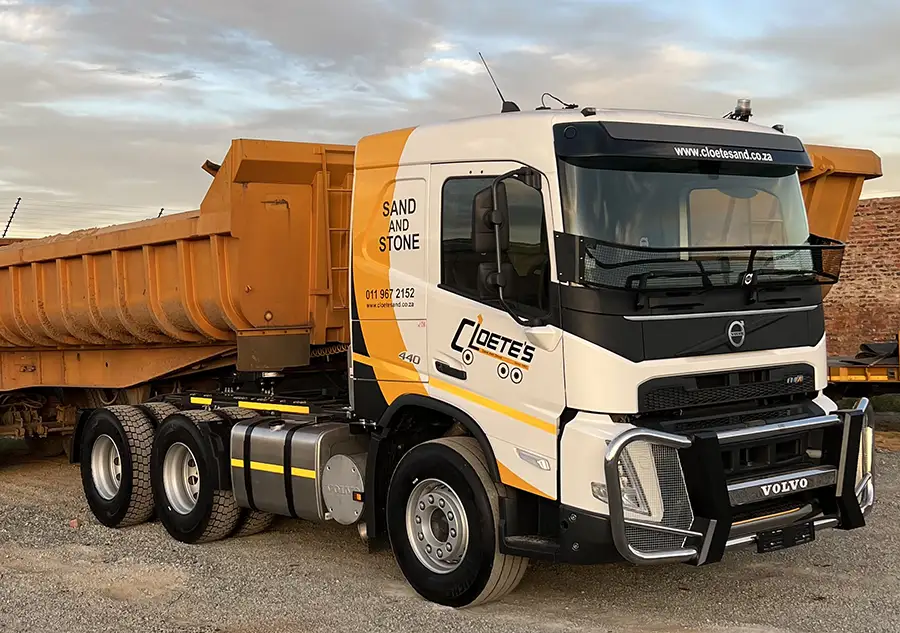
Driving efficiency
To further drive efficiencies, Cloete Sand & Stone has put several other initiatives in place. One of the key areas of focus is time management. “One of the critical parameters we monitor is standing time, whether at the loading point or at the point of delivery,” he says.
“To improve time management, we also ensure effective route planning using truck telematics and other freely available digital applications. We would rather choose to take a longer route to save time. Therefore, route planning for us is critical to achieving efficiencies.”
To further improve its operational efficiencies, the company insists on reducing what Cloete terms “dead leg” – trips where trucks travel empty. This is achieved by mapping and locating various quarries where material can be sourced within the delivery network to limit unladen travel.
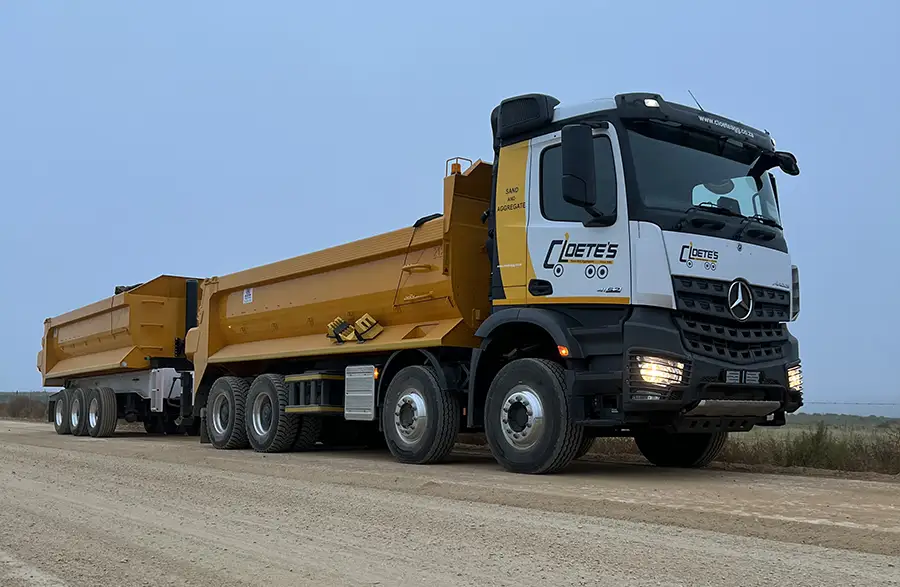
Technology matters
That the local quarrying value chain has traditionally been stubborn in its reluctance to adopt new technologies is no overstatement. Against this background, Cloete Sand & Stone has over time quietly gone about its digital transformation to become a modern-day business.
A big proponent of new technology, Cloete says this approach has allowed for new, more flexible ways of carrying out the job. To work out the best technologies for the business, the company assessed its existing needs against its requirements, carefully considering the right technologies to drive efficiencies.
“My interest in new technologies – be it the vehicles we purchase or the systems we use internally – has paid dividends for the business,” he says. “One of our earliest technologies in our digital transformation journey was the adoption of a software system called BiBi, a centralised digital system that enabled us to do quotations, delivery notes and invoices more efficiently than our conventional hand-written and typed documentation.”
However, the downside to this system was the need to have to continue to print out documents. During those days, Cloete recalls that he would work until 8 or 9 pm, printing out and despatching delivery notes for the day. This necessitated a significant capital investment in a paperless system called StratoPod, an ultimate delivery documentation solution.
“We worked together with the Strato IT Group to develop a solution that spoke directly to our needs, replacing all the manual processes and tasks associated with paper workflows. With the new system we can now, for example, assign and change loads on the fly without any need to phone drivers. It has also empowered us to endorse delivery documentation electronically at customer sites accurately, efficiently and safely. StratoPod has definitely been a game changer for us,” he says.

Family culture
As a family business, Cloete Sand & Stone places value on its family culture, which has always been cultivated across the business, resulting in employee loyalty – an extent to which employees are committed and involved with the business. To provide context, some of the current staff have been with the business for 30 to 32 years, helping the business build and keep an effective workforce that has allowed it to develop, grow and perform efficiently.
“Without our loyal staff who, in fact, have become family, we would not be where we are today. I am grateful for their loyalty and dedication to the business. Speaking of loyalty, our success as a company also hinges on our loyal customers who value our work ethic and service as a business. These customers have identified with our brand as a representation of themselves and trust our abilities to meet their material needs above all others,” concludes Cloete.
